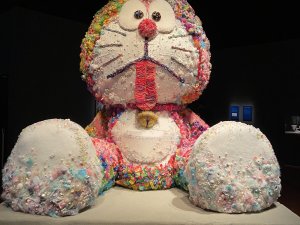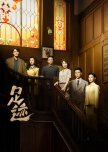This review may contain spoilers
The Journey of the Pocket Watch
The Story
This drama is set during the Republican era—a turbulent time in China when ordinary people were faced with limited choices, uncertainty, and difficult decisions. The director has done an excellent job in creating a realistic portrayal of that period, supported by a well-written script that thoughtfully explores the political climate of the time. The inclusion of romance helps to soften the heaviness of the historical and societal themes.
The life stories of three generations are anchored around the old Lin family home, which evolves over time from a residential house to a hospital and later to a fabric factory that doubles as a residence. The romance of three generations of women in the Lin family, spanning from the 1930s to the 1990s, begins with Lin ShiYun, the granddaughter of the Lin family. After studying abroad and becoming a gynecologist, she returns to China with modern thinking and a bold spirit. She challenges her family’s traditional views and navigates the troubles caused by her irresponsible, gambling brother. Lin ShiYun is a strong-willed, clear-headed, and courageous woman—her personality is very likable. Once she sets her mind on something, she is determined to see it through.
I haven’t watched many dramas featuring Jelly Lin, and her performances usually didn’t captivate me. However, in this role as ShiYun, she truly fits the character and made me believe in her.
She meets Cheng Ao, a gangster lawyer played by Ryan Cheng. Though raised in a family with gangster roots, Cheng Ao was educated abroad and upholds patriotic values passed down by his adoptive father. He is the male lead in the first arc—a righteous, intelligent, and principled man who complements ShiYun’s strong personality perfectly. Ryan Cheng shines in this role, and I believe it’s his best performance to date, especially compared to his other recent leading roles in two major “S” Wuxia/Xuanhuan productions.
The first arc tells the story of Cheng Ao and Lin ShiYun finding love amid political turmoil, staying true to their beliefs, and making difficult life choices. They are among the lucky ones who survive the war and migrate overseas. I thoroughly enjoyed their romance—it felt inspiring and meaningful.
The second arc begins from episode 12 and centers on YiYi, ShiYun’s niece, who is deeply influenced by her aunt’s worldview. YiYi is widowed at a young age and faces discrimination from a conservative society. Her quiet, non-confrontational nature makes her a target of prejudice, but with determination and resilience, she finds her voice and love again. YiYi pursues her passion for clothing design and eventually thrives in the fashion industry. Her romance with a Communist Party minister, Wen Pu (played by Liu YiJun), is touching and layered with social tension. As always, Liu YiJun delivers a solid performance.
YiYi is portrayed by Tong Yao, an up-and-coming actress who feels very natural in this role. Although the second arc takes time to pick up—partly due to YiYi’s withdrawn personality—her quiet strength and artistic soul grow on you. As you begin to understand her grief and emotional depth, you can’t help but empathize with her and even wish that others would leave her alone. The side characters are frustrating at times, but they serve as realistic representations of the extreme ideological views present during early Communist China. The second arc concludes in episode 21, highlighting the hardships faced by YiYi and Wen Pu.
The final romantic arc follows YiYi’s granddaughter, Ye XiNing, whose love story begins with a chance encounter with schoolteacher Xiang BeiChuan. After being falsely accused and losing her job, XiNing’s journey is about rebuilding her career and discovering love. Among the Lin women, she is probably the most unlikable at first—impulsive, dramatic, and outspoken. However, she is also hardworking, resilient, and maintains a positive outlook. From working in a small jean factory to running an international clothing business, her growth is admirable.
XiNing and BeiChuan are complete opposites: she is loud, emotional, and blunt, while he is quiet, cautious, and principled. At times, it’s easy to feel sympathy for BeiChuan as XiNing’s dominating personality overwhelms him. But their romance grows as they work through misunderstandings and eventually commit to each other. Spoiler: this couple is the only one we see getting married on-screen.
A beautiful touch in the story is the symbolic passing of a pocket watch—from Cheng Ao to Lin ShiYun, then to YiYi, and finally to XiNing—representing the passage of time and the enduring values passed down through generations.
My Thoughts on the Couples (CPs):
Many viewers came to this drama for Ryan Cheng, who only appears in the first arc (up to episode 11). I particularly liked his role here, so I wanted to share my thoughts on the romantic arcs:
CP1 – Cheng Ao & Lin ShiYun
Their story is about spontaneity, contrasts yet shared values, courage, and remaining true to one’s roots. It’s a tale of ordinary people becoming heroes in extraordinary times.
CP2 – YiYi & Wen Pu
This is a story of forbidden love and defying social norms. It highlights the limitations imposed by society, and the endurance needed to triumph over adversity.
CP3 – Ye XiNing & Xiang BeiChuan
Their romance shows how love can blossom under unlikely circumstances. It’s about opposites attracting, seizing opportunities, holding onto beliefs, and striving for success while staying grounded.
All three love stories are intricately woven into the fabric of time, each representing a different response to the challenges of their era.
There are many powerful and thought-provoking lines in the drama about relationships, choices, and the consequences of decisions made. I truly enjoyed this drama and hope that more people will come to appreciate its depth, storytelling, and emotional richness.
This drama is set during the Republican era—a turbulent time in China when ordinary people were faced with limited choices, uncertainty, and difficult decisions. The director has done an excellent job in creating a realistic portrayal of that period, supported by a well-written script that thoughtfully explores the political climate of the time. The inclusion of romance helps to soften the heaviness of the historical and societal themes.
The life stories of three generations are anchored around the old Lin family home, which evolves over time from a residential house to a hospital and later to a fabric factory that doubles as a residence. The romance of three generations of women in the Lin family, spanning from the 1930s to the 1990s, begins with Lin ShiYun, the granddaughter of the Lin family. After studying abroad and becoming a gynecologist, she returns to China with modern thinking and a bold spirit. She challenges her family’s traditional views and navigates the troubles caused by her irresponsible, gambling brother. Lin ShiYun is a strong-willed, clear-headed, and courageous woman—her personality is very likable. Once she sets her mind on something, she is determined to see it through.
I haven’t watched many dramas featuring Jelly Lin, and her performances usually didn’t captivate me. However, in this role as ShiYun, she truly fits the character and made me believe in her.
She meets Cheng Ao, a gangster lawyer played by Ryan Cheng. Though raised in a family with gangster roots, Cheng Ao was educated abroad and upholds patriotic values passed down by his adoptive father. He is the male lead in the first arc—a righteous, intelligent, and principled man who complements ShiYun’s strong personality perfectly. Ryan Cheng shines in this role, and I believe it’s his best performance to date, especially compared to his other recent leading roles in two major “S” Wuxia/Xuanhuan productions.
The first arc tells the story of Cheng Ao and Lin ShiYun finding love amid political turmoil, staying true to their beliefs, and making difficult life choices. They are among the lucky ones who survive the war and migrate overseas. I thoroughly enjoyed their romance—it felt inspiring and meaningful.
The second arc begins from episode 12 and centers on YiYi, ShiYun’s niece, who is deeply influenced by her aunt’s worldview. YiYi is widowed at a young age and faces discrimination from a conservative society. Her quiet, non-confrontational nature makes her a target of prejudice, but with determination and resilience, she finds her voice and love again. YiYi pursues her passion for clothing design and eventually thrives in the fashion industry. Her romance with a Communist Party minister, Wen Pu (played by Liu YiJun), is touching and layered with social tension. As always, Liu YiJun delivers a solid performance.
YiYi is portrayed by Tong Yao, an up-and-coming actress who feels very natural in this role. Although the second arc takes time to pick up—partly due to YiYi’s withdrawn personality—her quiet strength and artistic soul grow on you. As you begin to understand her grief and emotional depth, you can’t help but empathize with her and even wish that others would leave her alone. The side characters are frustrating at times, but they serve as realistic representations of the extreme ideological views present during early Communist China. The second arc concludes in episode 21, highlighting the hardships faced by YiYi and Wen Pu.
The final romantic arc follows YiYi’s granddaughter, Ye XiNing, whose love story begins with a chance encounter with schoolteacher Xiang BeiChuan. After being falsely accused and losing her job, XiNing’s journey is about rebuilding her career and discovering love. Among the Lin women, she is probably the most unlikable at first—impulsive, dramatic, and outspoken. However, she is also hardworking, resilient, and maintains a positive outlook. From working in a small jean factory to running an international clothing business, her growth is admirable.
XiNing and BeiChuan are complete opposites: she is loud, emotional, and blunt, while he is quiet, cautious, and principled. At times, it’s easy to feel sympathy for BeiChuan as XiNing’s dominating personality overwhelms him. But their romance grows as they work through misunderstandings and eventually commit to each other. Spoiler: this couple is the only one we see getting married on-screen.
A beautiful touch in the story is the symbolic passing of a pocket watch—from Cheng Ao to Lin ShiYun, then to YiYi, and finally to XiNing—representing the passage of time and the enduring values passed down through generations.
My Thoughts on the Couples (CPs):
Many viewers came to this drama for Ryan Cheng, who only appears in the first arc (up to episode 11). I particularly liked his role here, so I wanted to share my thoughts on the romantic arcs:
CP1 – Cheng Ao & Lin ShiYun
Their story is about spontaneity, contrasts yet shared values, courage, and remaining true to one’s roots. It’s a tale of ordinary people becoming heroes in extraordinary times.
CP2 – YiYi & Wen Pu
This is a story of forbidden love and defying social norms. It highlights the limitations imposed by society, and the endurance needed to triumph over adversity.
CP3 – Ye XiNing & Xiang BeiChuan
Their romance shows how love can blossom under unlikely circumstances. It’s about opposites attracting, seizing opportunities, holding onto beliefs, and striving for success while staying grounded.
All three love stories are intricately woven into the fabric of time, each representing a different response to the challenges of their era.
There are many powerful and thought-provoking lines in the drama about relationships, choices, and the consequences of decisions made. I truly enjoyed this drama and hope that more people will come to appreciate its depth, storytelling, and emotional richness.
Was this review helpful to you?


 1
1 7
7






















